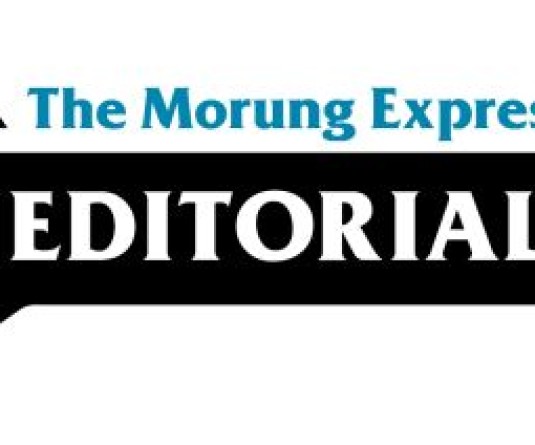
A setback to free speech & Press freedom
Dr. Asangba Tzüdir
At a time when free Speech should be viewed as a potentially revolutionary form of communication in the process of societal transformation beginning with governance, the recent May 13th verdict of the Supreme Court bench comprising Justice Dipak Mishra and Prafulla C. Pant has further jeopardized the constitutionality of free speech as a fundamental right. The verdict dismissed the challenges to the constitutionality of the provisions in the Indian Penal Code (IcPC) and the Code of Criminal Procedure (CrPC) that make defamation a criminal offence.
Through different petitions, the High Courts and the Supreme Court were challenged on the constitutionality of Sections 499 and 500 of the IPC and Sections 199(1) to 199 (4) which deals with prosecution for defamation; and to declare such sections as unconstitutional. Coming to defamation, Section 499 of the IPC states that whoever makes accusations concerning any person intending to harm, or knowing that such accusation will cause harm to the reputation of such person, is said to be a case of defamation. Section 500 of the IPC maintains that the person defaming another shall be punished with imprisonment for a period that may extend up to two years, or with fine, or with both. However, there are provisions that provide certain exceptions to such cases of defamation, that, it is not defamatory if the statement is made for the public good or if it deals with public conduct of public servants.
The lead petitioner in the case was filed by Subramanian Swamy (BJP) member of the Rajya Sabha along with Congress Vice-President Rahul Gandhi and Delhi Chief Minister Arvind Kejriwal. At the backdrop, in February 2014, Nitin Gadkari, a former President of BJP, had filed a case against Arvind Kejriwal for including his name in a list of India’s most corrupt politicians. Then, the RSS had filed a defamation case in March 2014 against Rahul Gandhi for his remarks that the RSS had a role in Mahatma Gandhi’s assassination. Now, Swamy is in disagreement with the Central government that opposed decriminalization of defamation. He contends that the governments justification for retaining such provisions against defamation is not justified because a person accused of defamation may not be in a position to compensate the ‘victim’ and that, in order to defame someone, a person should have economic status to do so, thereby discouraging persons from economically weaker sections from free expression. But whatever the constraints from the economic point of view or for other valid reasons that comes within the exceptional provisions that demands warranted consideration, it the expression of truth, which becomes a limited defense and thereby a setback to free speech and expression. It is here that the exceptional provisions need to be pushed further as a case against criminalizing defamation.
Beyond the ‘reasons and justifications’ given by the two member bench dismissing the challenges regarding the constitutionality of IPC and CrPC that make defamation a criminal offence, one can look into the issues related to defamation from the point of the provisions that specifies certain ‘exceptions to the rule’ thereby lending credibility to defamation. That, a statement is not defamatory, if it is made for the public good or if it deals with public conduct of public servants.
When it comes to freedom of speech, media, especially the press, is an important sphere of consideration being a quasi-public agency in upholding the ideals of democracy. Often media is pitted within the danger of defamation, responsibility of reporting facts and moral obligation towards far reaching effects of any reporting. There is also the discursive curtailment of media activism by different levels of political agencies and can be charged with a lawsuit for defaming an individual or organisation irrespective of whether their ‘conduct’ was right or wrong. There are also ‘unwritten’ issues related to defamation beyond factuality and falsity irrespective of whether an ‘action’ is morally right or wrong. But, whatever the case maybe, any statement made ‘in the interest of public good’ holds substance towards decriminalizing defamation.
In the great duty and responsibility of the press it acts not only as an agency for reporting news items but also for intervention in serious political, social, economic and other concerns that has serious implications that may have far reaching impacts on the life of the citizens and therefore, it is of paramount importance that the constitutional guarantee of freedom of speech and expression is not just maintained in black and white but also realized in spirit so that its independent functioning is in no way curtailed.
(Dr. Asangba Tzüdir is Editor with Heritage Publishing House. He writes a weekly guest editorial for the Morung Express. Comments can be mailed to asangtz@gmail.com)






